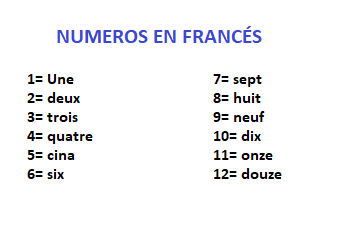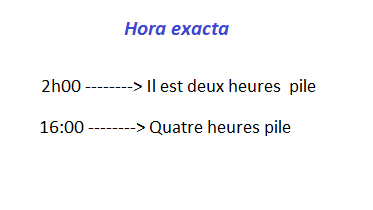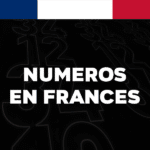Can learn the hours in french It is not difficult at all, with a little attention and practice you will already have it more than known. First, before starting the tutorial we will tell you some words that you will find in the vocabulary too many times and we will explain it to you so you realize what each one of them means.
Here is the basic vocabulary you should know if you want to know how to learn to say the hours of the day in French:
L'heure: It means the word "hour."
The second: It means "seconds".
The minute: What he means is "minutes."
et quarter: It is used when we want to say a quarter of an hour, that is, it means 15 minutes of a schedule or more every day it is said an hour and a quarter.
Et demi: It is used when we want to tell the other person that 30 minutes have passed.
Less: We use it when we need to say the minutes that go from 31 to 59.
Moins le quarter: This is easy, it means minus a quarter, that is, there are 15 minutes left to complete the hour.
Pile: We use it when we say the hour on the dot.
The morning: It refers to when the day starts, either 00:00 or 12:00.
I measured him: It is a word that points to exactly 12 noon.
Soir to him: Word that is used when it is starting to get dark.
The nuit: Word that is used by people when it is night. The French usually use them after dinner that is from 21pm.
So that you do not make a mistake when writing the hours in French, we must clarify that in this country the two points followed by the missing minutes are not usually used too much. The inhabitants who have this language replace the colon (:) by writing the letter h which, as we told you before, means heure (time in Spanish).
Also another element that several countries use but not in France, is to set the time am or pm, instead of these abbreviations these following phrases are usually used: le soir, le matin and, l'après-midi, here below you we will leave some examples:
In case you cannot see the image, we will clarify it for you:
- Il est trois heures du matin at 3:00 am
- Il est trois heures de I'après-midi at 3:00 pm
Another thing you should know before starting is to understand the numbers in French because if you have to say a different number like 4, you should know it because the time is not always exact or and a half. We expose this in this image:
If you are in France, to be able to ask a citizen for the time you should say it in the following way: "Quelle heure est-il", to be able to say it with more security and that you know it easier, it is pronounced like this: "kel or e til" .
When you want to say the time, you should start with an "Il est______ heure", it is important that you convert it to the plural when it is more than one hour, for example: when it is two o'clock: deux heures.
Now that you have learned the basic vocabulary for the hours in French, let's proceed to teach you the different ways that there are to be able to tell the time in the language named above.
The hour with numbers
The structure that this sentence will have will be the following: Il est + (whatever time it is at that moment) + heure (important if it is more than 1, add the S) + the minutes.
- 2:00 ——–> Il est deux heures
- 6:50 ——–> Il est six heures cinquante
- 5:10 ——–> Il est cinq heures dix
The hour in fractions
This is another method to be able to say the time in French. Every day in Spanish to say the time, specific expressions such as fractions are used, such as: half an hour or a quarter of an hour. Next we will tell you how to say these in the language of France:
8:15 ——–> Il est huit heures et quarter.
8:30 ——–> Il est huit heures and a half.
8:45 ——–> Il est neuf heures moins le quart.
Time + time of day
In this way we will teach you how to tell the time in French plus the time of day (night, noon, among others). The sentence is constructed as follows: Il est + [hora] + heure (s) [Remember that the “S” goes on different occasions] + du matin / de l'après-midi / du soir / midi / minuit ( the different times you can find in the day).
- In the morning ——–> 10:05 ——–> Il est dix-heures zéro cinq du matin
- Afternoon ——–> 2:00 ——–> Il est deux-heures de l'après-midi
- Night ——–> 8:00 ——–> Il est huit-heures evening
- Midnight ——–> 00:00 ——–> Il est midnight
- Noon ——–> 12:00 ——–> Il est midi
Exact time in French
One of the last ways to be able to tell exact times in French is by learning the structure of the sentence. We can put the latter together like this: Il est + [time] + pile.
Some examples are the following:
Now that you know all the ways to say the hours in French, we will show you what a full hour would look like with all the methods we teach you.
9:00 It's new hours
9:05 Il est neuf heures cinq
9:10 ——–> Il est neuf heures dix
9:15 ——–> Il est neuf heures et quarter
9:20 ——–> Il est neuf heures vingt
9:25 ——–> Il est neuf heures vingt-cinq
9:30 ——–> Il est neuf heures et demie
9:35 ——–> Il est dix heures less twenty five
9:40 ——–> Il est dix heures less twenty
9:45 ——–> Il est dix heures quarter to
9:50 ——–> Il est dix heures less dix
9:55 ——–> Il est dix heures less five
One piece of advice we want to tell you is that if you want to practice these methods, do them if possible with a person who is from France or who knows the language perfectly, because if you see it in writing it is very difficult but not impossible to learn. Another possibility is to watch the video that we leave below if it is easier for you to learn it:






